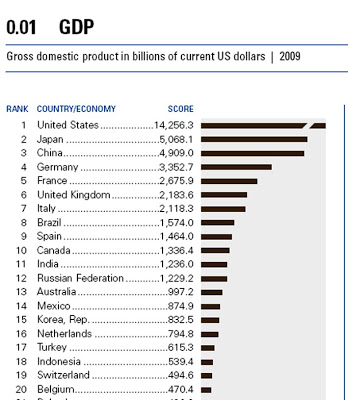The Global Competitiveness Report 2010-2011
World Economic Forum
Professor Xavier Sala-i-Martin
Columbia University
Chief Advisor of the Centre for Global Competitiveness and Performance
‘Partner’ en España:
IESE Business School, International Center for Competitiveness
Antoni Subirà, Professor
María Luisa Blázquez, Research Associate
España, al puesto 42 (de 139 países).
‘Spain has dropped nine ranks this year to 42nd
place. The decline is in large part attributable to an
increasingly negative assessment of the labor and financial
markets as well as the level of sophistication of the country’s
businesses. On a more positive note, Spain’s competitiveness
performance continues to be boosted by the
large market (13th) available to its national companies,
strong technological adoption (30th in the technological
readiness pillar), first-class infrastructure (14th), and good
higher education and training (31st). Overall, the greatest
area of concern remains the highly inflexible labor market
(130th on the related subpillar), which discourages
job creation—a matter of particular concern considering
the high and persistent unemployment in the country.’
Los europeos.
Los problemas de España.
Pese a tener el noveno PIB mundial…
…estamos en el puesto 23 per cápita.
Seventh pillar: Labor market efficiency
The efficiency and flexibility of the labor market are critical
for ensuring that workers are allocated to their most
efficient use in the economy and provided with incentives
to give their best effort in their jobs. Labor markets must
therefore have the flexibility to shift workers from one
economic activity to another rapidly and at low cost, and
to allow for wage fluctuations without much social disruption.
14The importance of the latter has been dramatically
highlighted by the difficulties countries with particularly
rigid labor markets—such as Spain—have encountered
in recovering from the recent major economic
downturn.
Efficient labor markets must also ensure a clear relationship
between worker incentives and their efforts, as
well as equity in the business environment between
women and men.








